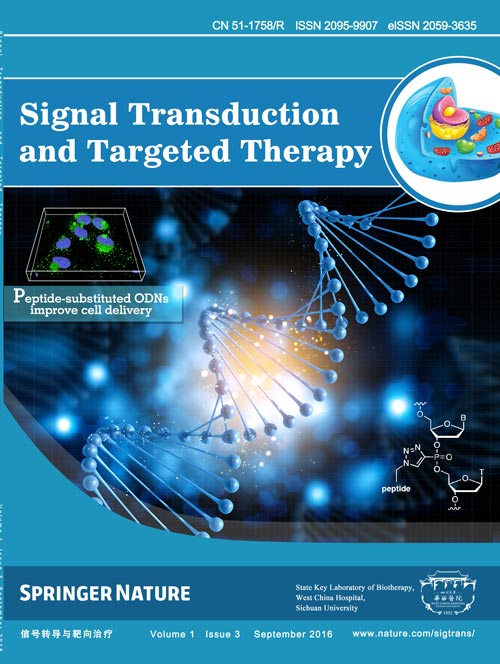Volume 1 Issue 3, Sep 2016:
Article
TIFA suppresses hepatocellular carcinoma progression via MALT1-dependent and -independent signaling pathways
Wenzhi Shen,Renle Du,Jun Li,Xiaohe Luo,Shuangtao Zhao,Antao Chang,Wei Zhou,Ruifang Gao,Dehong Luo,Juan Wang,Na Hao,Yanhua Liu,Yanan Chen,Yunping Luo,Peiqing Sun,Shengyong Yang,Na Luo &…Rong Xiang
TIFA, also called T2BP, was first identified using yeast two-hybrid screening. Our previous work showed that TIFA suppresses hepatocellular carcinoma (HCC) progression via apoptosis and cell cycle arrest. However, the mechanism by which this TIFA suppression occurs remains unclear. Here we demonstrated that TIFA-induced apoptosis demonstrates two distinct time patterns (i.e., at 48 h and >7 days) when TIFA reconstitution occurs. Moreover, we found that MALT1 (a competitor of TIFA) plays a crucial role in short-duration TIFA reconstitution. In this regard, MALT1 silencing with shRNA markedly enhances TIFA-induced apoptosis in vitro and in vivo. In addition, TIFA overexpression triggers JNK and p38 activation in long-duration TIFA reconstitution through TRAF6 binding. In particular, JNK activation leads to TIFA-induced apoptosis while p38 activation governs TIFA-induced cell cycle arrest by p53-p21 signaling in vitro and in vivo. Our data suggest a novel mechanism by which TIFA suppresses HCC progression via both MALT1-dependent and MALT1-independent signaling pathways. This may provide insights into a novel targets where HCC progression may be vulnerable to clinical treatment.
